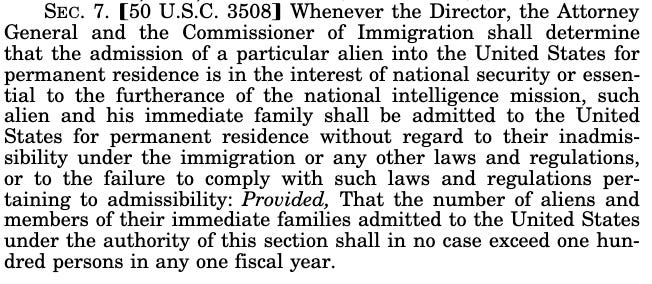A Dangerous Tendency in American Strategic Thinking
When "Getting off the X" becomes an end to itself
A recent report that the U.S. government was pushing territorial concessions by Israel to “end” the “border conflict” with Hizbollah made a lightbulb go off in my head. Suddenly I understood the Biden Administration’s approach to the crisis (crises?) in the Middle East. It was all about “getting off the X.”
Let me explain.
Years ago, when I was in the CIA, I was given a modicum of weapons training before going to Afghanistan. I say “modicum” because I do not wish to imply that I went through anything like the intense training sequences one sees in action movies. The CIA’s intent was not for me—an analyst—to become Jack Bauer, but rather to increase the probability that I would survive a potentially lethal situation to something greater than zero.
Woody Allen in Bananas. Or me in my CIA weapons course?
Among the things we covered in my training was how to handle being ambushed while driving. My instructors made clear that if ambushed, the priority was to “get off the X,” the X being the kill zone, the site of the ambush. More specifically, they told us to push the gas pedal to the floor and drive through or around the ambush as quickly as possible. They absolutely did not want us to fight the attackers unless we had no choice, i.e. if our path was blocked and we could not flee the scene. After all, the CIA was providing us with neither the skills nor the firepower to fight our way out of an ambush.
At roughly the same time, I was tracking the 2009 Afghan national election. I was worried about whether the election would have a result that was credible in Afghans’ eyes, and whether the entire exercise would enhance or weaken the Afghan state’s legitimacy. I had every reason to believe the election would be a train wreck, not just for the Afghan people but for the U.S., which was conducting a war there that depended on Afghan state legitimacy for success. The election was a window of opportunity for the Afghan government and its international backers to advance their cause; it was also an opportunity to score a potentially crippling own goal.
What I observed was that the U.S. government had no interest in ensuring the success of the election cycle and seizing the opportunity to enhance Afghan state legitimacy. What mattered was the danger that the election could spark a civil war, which some within the U.S. government considered a worst-case scenario. When the election (as I predicted) turned out to be a train wreck mired by irregularities and fraud, which astonishingly took the White House by surprise, and when incumbent President Hamid Karzai failed to win an outright majority, necessitating a second round of voting, the Obama Administration’s response was to “get off the X.” It did everything it could to rush the whole process to a speedy resolution and, in effect, drive through or around the danger zone as quickly as possible. The White House finally achieved this by pressuring everyone to forgo a constitutionally-mandated second round and return Karzai to the presidency, never mind the damage down to the legitimacy of the election result.
The Obama Administration was shocked SHOCKED! to learn Karzai cheated in the 2009 Afghan presidential election. Sadly, it really was.
What might U.S. policy have looked like if “getting off the X” was not its objective? It might have made a serious attempt to ensure a credible election. The 2004 and 2005 Afghan presidential and legislative elections had generated a mountain of high-quality analysis by international organizations that laid out in detail what went wrong and what could be done to improve matters. The “to do” list was long, but it was clear and specific. The U.S. government did nothing. Alternatively, the U.S. government could have regarded the desired end state to be the election of a picked man, whoever that might have been. I was rooting for the third place finisher, Ramazan Bashardost, whom the State Department had written off as “crazy” because it’s stupid and could not be bothered to try to understand anything going on outside the Embassy compound. Honestly, though, anyone would have been better than Karzai. The devil one knows is not better than the devil one does not know when the devil one knows is demonstrably a failure. One of the dumber stories from back then was that of Ali Ahmed Jalali, a former Afghan minister with excellent credentials who flirted with running against Karzai but declined because he did not want to give up his U.S. citizenship, which the Afghan constitution required to be a presidential candidate. Somehow the geniuses at the State Department and CIA could not figure out how to find a way to guarantee that Jalali would be able to reclaim his citizenship if he renounced it to run. Don’t tell me they cannot bend such rules, because they absolutely can and do. The CIA in fact has the legal power to grant U.S. residency to anyone it wants.
One of CIA’s superpowers enshrined by the 1949 CIA Act: the power to grant anyone it wants U.S. permanent residency status.
Instead, what happened was that the U.S., in its haste to escape the immediate danger represented by the election, helped bring about what really was the worst possible result: the election of a deeply flawed candidate (Karzai) in an election that was so mired by irregularities as to undermine whatever legitimacy he might have had. Yes, yes, there was a fear of a civil war, which would have been worse, but there was at best only a small chance of that happening.
Which brings us to Israel and the Middle East. Per the report cited above, the White House has cooked up a plan to quell the crisis between Israel and Hezbollah by means of some sort of land swap. To be absolutely clear, such a thing would make sense if and only if one’s objective was to “get off the X,” meaning to drive through or around the current crisis without in fact resolving anything, any doing so out of fear that something horrible might happen if one did not get off the X. Moreover, fear of that eventuality outweighed any other consideration, such as the potential benefits of seeking to achieve any objective other than getting off the X. After all, getting out of the kill zone, so to speak, would do nothing to ensure long-term peace or provide anyone security. A crisis postponed is not a crisis solved. This also applies to the White House’s keen interest in a “ceasefire” between Israel and Hamas. It is approaching the matter as if a ceasefire in and of itself was the war’s desired outcome.
As with the 2009 Afghan election, the alternative would be to think in terms of what outcome might in fact support U.S. strategic objectives, and act in support of achieving those objectives. But what are American strategic objectives? Is it our goal to weaken Hizbollah/Iran, or simply avoid confrontation with them? Do we wish to emerge stronger, or just emerge? Is getting off the X so desirous a goal that we are willing to pay a price? Pay any price? We say we are committed to Israel’s security, but is the rush to get off the X consistent with that objective? I am not so sure. Getting off the X amounts to dodging a bullet, for sure, but it doesn’t stop one’s enemies from trying again, and most likely from a position of greater strength.
I close with an amusing anecdote from my CIA training: We practiced responding to ambushes by dividing into pairs and taking turns using mock-up Toyota pickup trucks. We’d pretend to drive, and when an instructor yelled “ambush,” we’d simulate hitting the gas and then exiting the car, which is more difficult than one thinks if one’s carrying weapons and has to work with enormously heavy armored doors that can do one serious harm. When it was the turn of me and my partner, a contractor, I was in the driver seat, and the contractor was in the passenger seat to my right. The instructor yelled “ambush,” and I immediately hit the gas pedal to simulate trying to escape. The guy next to me, to my astonishment, attempted to maneuver his legs into my space and stand on my right foot, which I was using to press down on the gas pedal. I’ll never forget the look of the instructor, a salty retired MARSOC operator, who watched this happening in stunned silence before finally asking, calmly, “WTF are your doing?!?” To which the guy, both feet now crushing my right foot, replied, “You told us to slam the gas pedal with our feet if we’re ambushed!”
That guy failed the weapons certification class.






